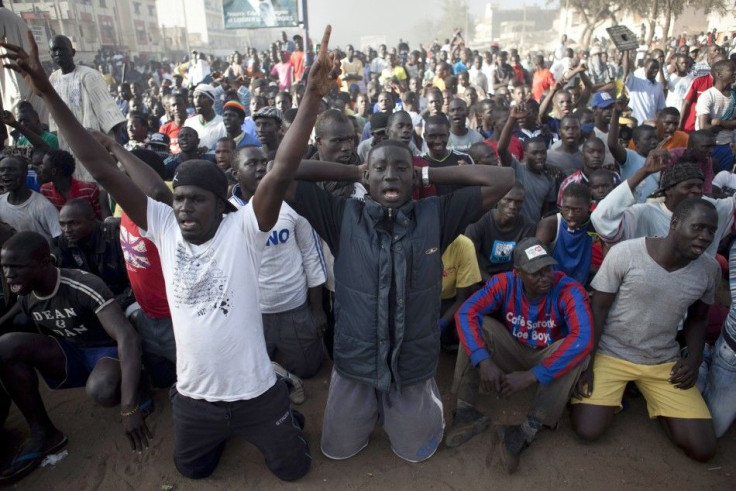Clashes Continue in Senegal over President's Bid for New Term

(Reuters) - Senegal security forces clashed with protesters in Dakar and surrounding suburbs Sunday in the fifth straight day of demonstrations against President Abdoulaye Wade's candidacy in a Feb. 26 election.
Youths set fire to tires, smashed car windows and barricaded roads near the presidential mansion in Dakar and several protesters were injured as police defending it fired back with teargas, rubber bullets and rocks, a Reuters witness said.
One protester was killed when a rubber bullet hit him in the head in the town of Rufiske, 15 miles from the capital, according to local media, bringing to at least six the number of dead in pre-electoral violence since last month.
The clashes come amid mounting pressure on Wade from opposition rivals and international partners to withdraw his bid for a third term in office, and have raised fears of growing instability in West Africa's most peaceful country.
Protesters said they took to the streets Sunday to retaliate after security forces fired a teargas grenade into a mosque during a demonstration on Friday.
They violated the mosque by firing teargas into it, and we are here to tell them never again, said Soulaymane Diop, 33, as he watched protesters shouting Allahu Akbar (God is greatest) and hurling chunks of concrete at police in full riot gear.
Clashes later erupted in several other suburbs and neighborhoods of Dakar, raising the tension seven days before Senegalese are due to go to the polls.
Opposition leaders and civil society group M-23 have vowed to make the country ungovernable if Wade does not step down before the vote, arguing the octogenarian's candidacy violates constitutional term limits.
The United States and France have both said they would like to see power pass to a younger generation.
Street clashes began late last month after Wade's candidacy was validated by the country's top legal body. Wade argued his first term should not be counted toward a two-term limit because it started in 2000, a year before the limit was introduced.
Wade will face more than a dozen rivals in the election, including former allies Macky Sall and Idrissa Seck. A run-off will be held if no candidate wins more than half the total vote.
Wade's rivals have so far struggled to forge a unified front against him. Wade, who led street protests before coming to power in 2000, has mocked the opposition for failing to mobilize a serious challenge and dismissed foreign criticism.
(Writing by Richard Valdmanis; Editing by Alison Williams)
© Copyright Thomson Reuters 2024. All rights reserved.











